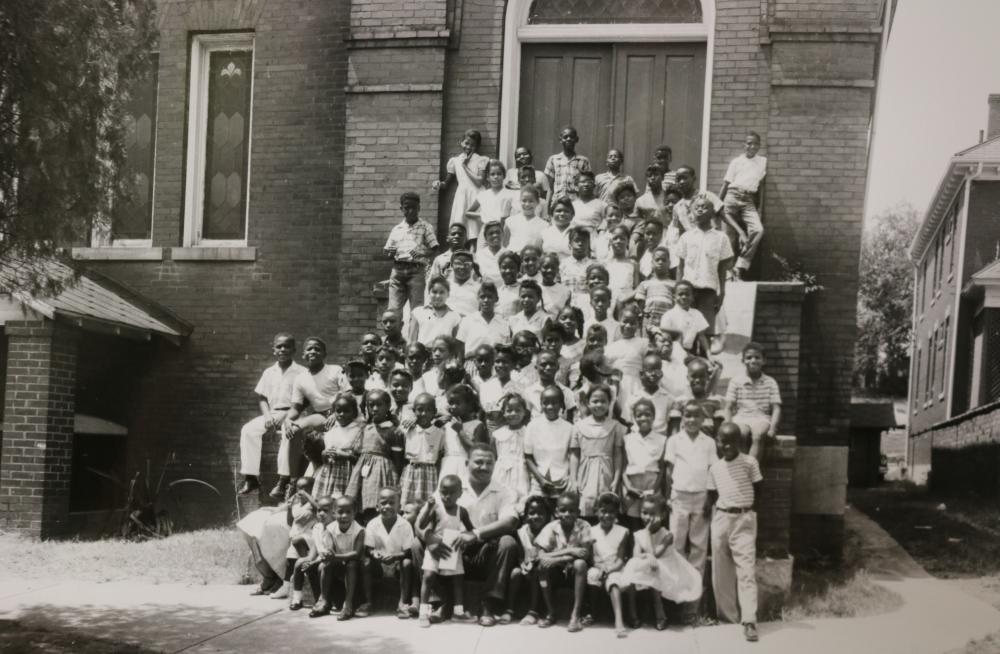
Section Branding
Header Content
Some Fear Wrecking Ball Will Wreck History Of Macon Church
Primary Content

Much has been made about Tremont Temple Baptist Church’s role in the civil rights movement.
For seven years, the Tremont congregation has been trying to sell its dilapidated sanctuary at 860 Forsyth St., which has stood for more than a century and is steeped in history. The church’s website lists civil rights icons Martin Luther King Jr., Benjamin E. Mays and the Rev. Jesse Jackson as having preached sermons there.
Recently, Tremont’s congregation asked for permission from the planning and zoning board to demolish the church, which has termites and a decaying roof, to make way for a Dunkin’ Donuts on the property. Church members want to sell the property, but planning officials have delayed making a decision until at least next month.
Because of its historical significance, the idea of knocking down the Forsyth Street church has preservation advocates on edge and the Historic Macon Foundation scrambling to figure out a way to save it.
“Tremont, along with First Baptist Church and Steward Chapel, those churches became the nerve center of the (civil rights) movement,” local historian Andrew Manis said. Manis, a Middle Georgia State College history professor, authored the book “Macon Black and White: An Unutterable Separation in the American Century.”
“Whoever was pastor of these churches, especially a church like Tremont, which was downtown, would have some significant influence in the black community of a city like Macon from the 1880s on,” he said. “So their significance is more than just what may have happened in those few years that we normally think of as the civil rights years.”
A Feb. 13, 1962, clip from WSB-TV shows William Randall, then-president of Macon’s chapter of the National Association for the Advancement of Colored People, speaking at a mass meeting.
“We will never stop in Macon until Macon is the best place to live in Georgia,” Randall said. “I’ll tell you this and I’ll stop. … You don’t have to doubt a single man back here. I’ve seen them in action. They cannot be intimidated, they cannot be browbeaten and you just can’t scare them.”
In the clip, one of the men behind Randall is the Rev. Elisha Paschal of Tremont Temple Baptist Church. Days earlier, he and the three others were arrested after they boarded a bus and refused to move to the back.
LINK: Archival WSB-TV clip from the University System of Georgia's Civil Rights Digital Library
From his church, Paschal helped organize a boycott against the Bibb Transit Co. Three weeks later, a judge ruled that segregated bus seating was unconstitutional and ordered the Bibb Transit Co. to comply with his judgment. Two days later, the Macon bus boycott ended.
At a Macon-Bibb County Planning and Zoning Commission meeting this month, Tremont trustee Brenda Cherry asked commissioners to approve the demolition permit that will allow the congregation to sell the property. Without it, the buyer isn’t interested, and she said the congregation needs the money to fund their ministry in the Bloomfield neighborhood.
“I was raised in Tremont Temple. I was baptized there so I know the history there,” she said. “We have the church in our heart, and regardless of where we are we remember our memories there.”
Still, Manis said Tremont is a historic building that should be preserved.
Manis, who is white, says that because many of the white churches in Macon did not support integration during the civil rights movement, he proposes a kind of reparation so to speak.
“Put some money in a pot to preserve the building. ... Let white congregations lead the way in that, and if that would happen then this silly idea of replacing a historic church with a (Dunkin’ Donuts) could lead to some action on the part of the white community in Macon.”
Manis said that could be an opportunity for white churches to say: “We were wrong then, but we can be right now.”
Canton, Mass.-based Dunkin’ Donuts is not attempting to purchase the church property directly, but the company’s site selection team is working on the sale on behalf of a franchisee, Atlanta-based company spokesman Michael Balser said.
“If the purchase and sale is approved, our franchisee intends to work with his architect to ensure the Dunkin’ Donuts is consistent with other buildings in the historic district and pays tribute to the heritage and history of the former church,” Balser read from a prepared statement.
Contributors: Telegraph Staff
Tags: Civil Rights, Leah Fleming, Tremont Temple Baptist Church
